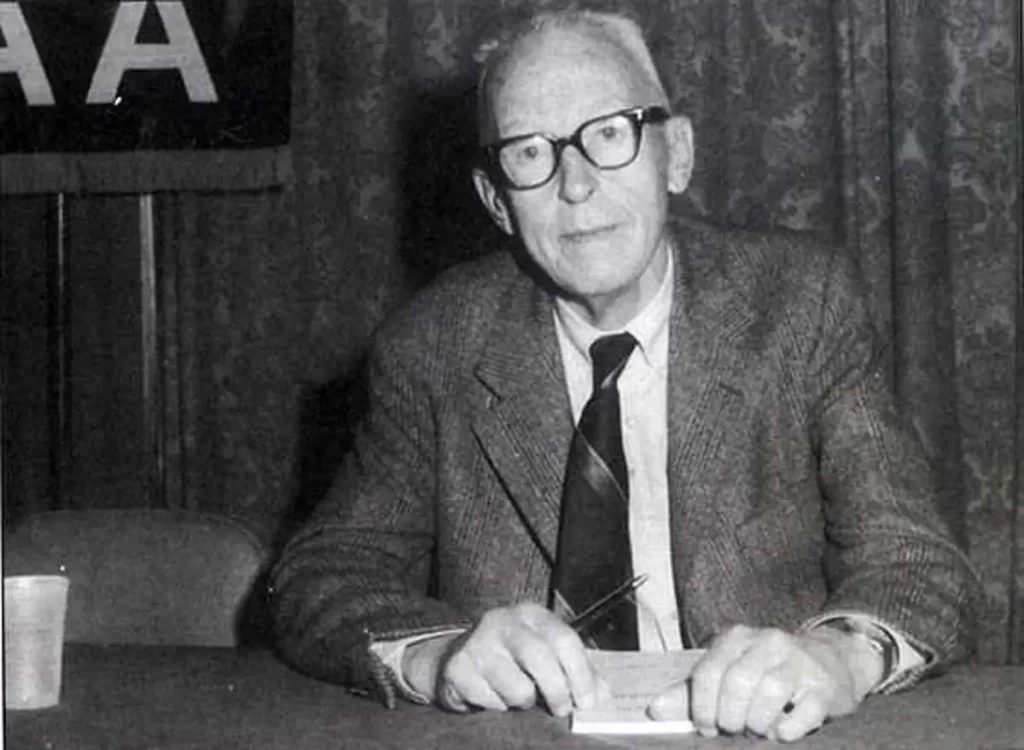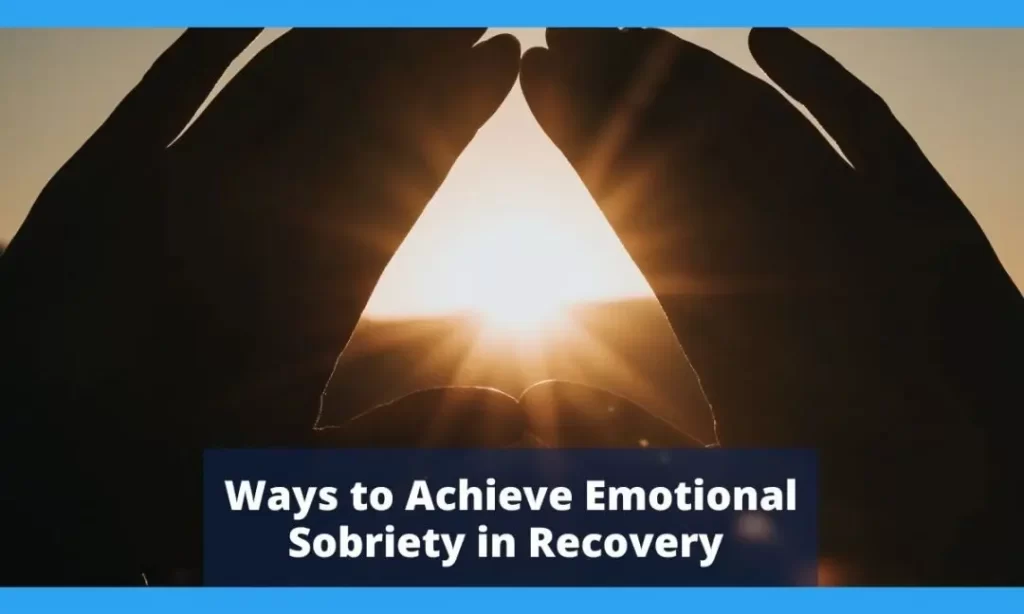Bill W: Emotional Sobriety and the Next Frontier
A Closer Look at Emotional Sobriety: The Next Frontier
Emotional sobriety is a concept that has gained significant attention among both mental health pros and those interested in growing their recovery once sobriety has been achieved. In his book, “Emotional Sobriety: The Next Frontier,” Bill Wilson, a co-founder of Alcoholics Anonymous (AA), explores the importance of cultivating emotional well-being alongside physical sobriety.
It contains a close analysis of the term, first put into popular usage with his text in 1958, and insights into a spiritual calculus that can help us sort out our emotional and instinctual satisfactions, and begin to put aside the more adolescent urges in favor of better spiritual direction!
This insightful book provides a unique perspective on recovery and offers valuable insights into achieving lasting positive change, even for those with more than a few 24 hours under their belt. If you feel you may lack emotional sobriety, or just want a little spiritual development, you’ve found the right resource!
So stick around to get a complete look at Bill W, emotional sobriety, and the Next Frontier, in the latest resource SOBRLIFE!
Understanding Emotional Sobriety: A Concept by Bill Wilson

Bill Wilson, a prominent figure in the world of recovery, believed that emotions were the next stage of growth for individuals in addiction recovery once abstinence was achieved and the Steps completed at least once.
He emphasized the need to address the underlying emotional issues that often accompany addiction. By doing so, Wilson argued, individuals can achieve a deeper level of healing and lasting sobriety.
Emotional sobriety is a multifaceted concept that encompasses various aspects of an individual’s emotional well-being. It refers to the ability to navigate and manage one’s emotions effectively, even in the face of challenges and triggers. It involves developing healthier coping mechanisms, regulating emotions, and fostering self-awareness.
One of the key components of emotional sobriety is the recognition and understanding of one’s emotional triggers. These triggers can be anything from certain people or situations to specific thoughts or memories. By identifying these triggers, individuals can learn to anticipate and manage their emotional responses, reducing the risk of relapse.
Defining Emotional Sobriety
Emotional sobriety goes beyond simply abstaining from alcohol or drugs; it encompasses the emotional stability and well-being necessary for long-term recovery. It is about finding balance in one’s emotions and being able to respond to life’s challenges healthily and constructively.
Developing emotional sobriety requires us to engage in self-reflection and introspection, to see spirituality as the primary healing circuit from which we will achieve our right mental conviction. It involves exploring past traumas, unresolved conflicts, and negative thinking and behavior patterns.
By addressing these emotional aspects, those of us in recovery can gain a deeper understanding of ourselves and the role of the disease in all our affairs, paving the way for the next major development of our lives, and leaving us open to further growth, wherever it may be found.
Emotional sobriety is closely tied to the development of resilience. Resilience is the ability to bounce back from adversity and maintain a positive outlook on life. By cultivating emotional sobriety, individuals can build resilience and better cope with the ups and downs of recovery.
The Importance of Emotional Sobriety in Recovery
As may be clear by now, emotional sobriety plays a crucial role in the recovery process. While physical sobriety addresses the addictive behavior itself, emotional sobriety addresses the underlying causes and triggers of addiction.
By addressing the emotional aspects of addiction, individuals can break free from the cycle of self-destructive behaviors and develop healthier coping mechanisms. Emotional sobriety allows individuals to confront and process their emotions healthily and constructively, rather than turning to substances as a means of escape.
Understanding Emotional and Instinctual Satisfactions
Moreover, emotional sobriety is essential for building and maintaining healthy relationships. Addiction often damages relationships, and emotional sobriety is necessary for repairing and rebuilding these connections.
It involves developing empathy, effective communication skills, and the ability to set boundaries in a healthy way.
Ultimately, emotional sobriety is about finding greater satisfaction and fulfillment in life. It is about embracing one’s emotions, both positive and negative, and using them as a catalyst for personal growth. By cultivating emotional sobriety, individuals can experience a sense of peace, purpose, and joy in their recovery journey.
Bill Wilson: The Man Behind the Concept

To truly understand the concept of emotional sobriety, it is essential to delve into the life of its creator, Bill Wilson.
A Brief Biography of Bill Wilson
Bill Wilson, born in 1895, was a co-founder of Alcoholics Anonymous and a prominent figure in the recovery community. Throughout his life, Wilson battled alcohol addiction and experienced multiple relapses before achieving lasting sobriety.
In many ways, his personal struggles and journey to recovery laid the foundation for the principles and concepts behind AA.
Wilson grew up in a small town in Vermont, where he had a relatively normal childhood. However, as he entered adulthood, he found himself increasingly drawn to alcohol as a means of escape. This led to a downward spiral of addiction, causing him to lose jobs, relationships, and his overall sense of self-worth.
A Series of Severe But Successful Tests
It wasn’t until Wilson hit rock bottom that he realized he needed help. He sought treatment at a hospital, where he experienced his first taste of sobriety. However, this initial period of abstinence was short-lived, as he soon found himself relapsing and back in the grips of alcoholism.
Wilson’s journey to recovery was a long and arduous one. He tried various methods and treatments, but none seemed to provide a lasting solution. It wasn’t until he met Dr. Bob Smith, another alcoholic seeking sobriety, that Wilson found the support and understanding he needed.
Wilson’s Journey to Founding AA
After achieving sobriety, Wilson saw the need for a supportive community for individuals battling alcoholism. In 1935, he co-founded Alcoholics Anonymous, a fellowship dedicated to helping alcoholics recover and maintain sobriety. Through his own experiences, Wilson recognized the critical role that emotional sobriety played in achieving long-term recovery.
Emotional sobriety, as defined by Wilson, goes beyond simply abstaining from alcohol. It involves addressing the underlying emotional, spiritual development, and psychological issues that contribute to addiction. Wilson believed that true sobriety could only be achieved by addressing these root causes and developing healthy coping mechanisms.
Bringing a Message to Those Who Still Suffer
Wilson’s dedication to helping others was evident in his work with AA. He tirelessly traveled across the country, sharing his story and spreading the message of hope and recovery. His personal experiences and insights became the cornerstone of the 12-step program, which has since helped millions of individuals worldwide.
Throughout his life, Wilson continued to advocate for those struggling with addiction. He believed that everyone had the capacity for recovery and that no one should be left behind. His legacy lives on through the countless lives he touched and the ongoing work of Alcoholics Anonymous.
Delving into ‘The Next Frontier: Emotional Sobriety’

In his groundbreaking book, “Emotional Sobriety: The Next Frontier,” Bill Wilson takes readers on a transformative journey, exploring the depths of this concept he coined and shedding light on its practical applications in the realm of recovery.
Wilson’s book is a comprehensive exploration of emotional immaturity as the basic flaw of the alcoholic, offering readers a profound understanding of its significance in the recovery journey. Through his straightforward prose and insightful anecdotes, he invites readers to embark on a path of self-discovery and emotional healing.
Far more than ‘only a gimmick,’ the elimination of compulsions and phony aspirations can provide real maturity and balance, allowing those who may feel stuck in their recovery a chance to develop and grow.
Bill W. likens the feeling of attaining a state of being emotionally sober with a typically astute observation:
“Nowadays my brain no longer races compulsively in either elation, grandiosity, or depression. I have been given a quiet place in bright sunshine.”
– Bill Wilson (AA Co-Founder)
An Overview of the Book’s Content
The book begins by providing an overview of emotional sobriety, delving into its multifaceted nature, and illuminating its profound impact on one’s overall well-being. Wilson explains in his matter-of-fact way, how emotional sobriety goes beyond abstinence from substances, emphasizing the importance of cultivating a healthy emotional state as a vital component of long-term recovery.
As readers delve deeper into the book, Wilson explores various aspects of emotional sobriety, offering invaluable insights and practical guidance. He highlights the significance of self-awareness, encouraging readers to examine their thoughts, emotions, and behaviors with honesty and curiosity.
Although difficult to achieve, the ability to continually surrender one own will to the will of whatever your higher power may be is the goal of emotional stability and maturity. Rather than an absolute quality, it is a matter of continual progress rather than perfection (a term you may already be familiar with!)
Cultivating Resilience in the Face of Adversity

Through introspective exercises and thought-provoking questions, Wilson shows a way for us to develop a profound understanding of ourselves, laying the foundation for lasting emotional growth.
Wilson delves into the crucial topic of building resilience in the face of adversity. He shares powerful stories of individuals who have overcome immense challenges and offers practical strategies to cultivate resilience in everyday life.
From developing healthy coping mechanisms to fostering a positive mindset, Wilson equips, from personal experience, us with the tools necessary to navigate life’s inevitable ups and downs with grace and strength.
Bill Wilson’s Approach to Emotional Sobriety
Wilson’s approach to emotional sobriety is rooted in the principles of honesty, humility, and self-reflection. Drawing from his own personal experiences and the wisdom gained through his journey, he encourages readers to embrace vulnerability and face their fears head-on.
Wilson passionately asserts that emotional growth is not an easy path, but an essential one for achieving lasting recovery and true fulfillment. Along with ‘A Pair of New Glasses,’ by Chuck C. the text forms a pivotal part of the AA canon.
Throughout the book, Wilson provides a wealth of valuable insights and practical guidance for individuals seeking to attain emotional sobriety. From cultivating self-compassion and practicing forgiveness to nurturing healthy relationships and finding purpose, he offers a comprehensive roadmap for readers to embark on their own transformative journey towards emotional well-being.
As readers immerse themselves in “Emotional Sobriety: The Next Frontier,” they will discover a profound exploration of the human spirit and the transformative power of emotional healing, a perfect complement when the Big Book requires a little additional support!
Wilson’s words resonate with many of us who are in recovery deeply, offering hope, inspiration, and a renewed sense of purpose to all those who seek a life of authentic fulfillment.
The Impact of Emotional Sobriety on Alcoholics Anonymous
As the founder of Alcoholics Anonymous, Bill Wilson’s concept of emotional sobriety has had a profound impact on the organization and its members.
Emotional Sobriety in AA’s 12-Step Program
The principles of emotional sobriety are firmly integrated into AA’s renowned 12-step Program. Recognizing the importance of emotional well-being, the program emphasizes addressing underlying issues, healing emotional wounds, and cultivating healthier coping mechanisms.
Emotional sobriety is seen as a crucial aspect of achieving and maintaining long-term recovery.
How Emotional Sobriety Shapes AA’s Philosophy
Emotional sobriety plays a pivotal role in shaping AA’s philosophy. By acknowledging and addressing the emotional aspects of addiction, the organization provides a comprehensive approach to recovery that supports individuals in achieving physical and emotional well-being.
The concept has become an integral part of the AA tradition and has proven instrumental in helping countless individuals worldwide, many of our SOBRLIFE crew among them!
A Critical Analysis of ‘The Next Frontier: Emotional Sobriety’

“Emotional Sobriety: The Next Frontier,” presents a thought-provoking perspective on addiction recovery, but like any concept or book, it has strengths and potential limitations that deserve examination.
The Strengths of Wilson’s Concept
One of the key strengths of Wilson’s concept is its emphasis on long-term sobriety and emotional transformations throughout. By integrating emotional well-being into the recovery process, those of us following the path of Bill W. are more likely to sustain lasting change and put aside the defects we brought with us in getting sober.
The Potential Limitations of Emotional Sobriety
While emotional sobriety is a valuable concept, it is important to acknowledge that it may not be a one-size-fits-all approach. Some of us may struggle with ingrained emotional patterns that require additional therapeutic intervention. While a few traditionalists cling to the false belief that therapy is not needed for AA members, Bill W. himself would contest such a notion.
It is crucial to seek personalized support, the kind that makes sense to you, and to explore various avenues to achieve emotional sobriety that align with your goals and needs. If you have an unhealthy dependency, even in sobriety, then reach out for a source of help that works for you!
Many of us would call this a part of ‘living in the solution!’
Stay Tuned for More Sobriety Resources from SOBRLIFE Clothing
“The Next Frontier: Emotional Sobriety” by Bill Wilson is an insightful and thought-provoking book that explores the importance of emotional well-being in addiction recovery. Wilson’s concept of emotional sobriety has had a significant impact on the recovery community, influencing the approach of organizations like Alcoholics Anonymous to this day.
Keep your browser locked to SOBRLIFE.com for the latest guides and news from the sober community, and watch out for our new personalized Celebrations line, now in stock!

